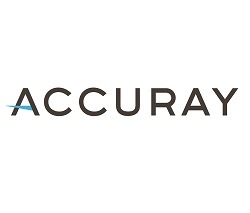 Accuray has announced the publication of more than two decades of globally-driven clinical data supporting the use of its CyberKnife robotic radiotherapy platform for the delivery of stereotactic radiosurgery (SRS) treatments for neurological diseases. The most recent CyberKnife data, an analysis of 7,000 patients with brain or spinal lesions treated at Stanford University School of Medicine, have been published online in the Journal of Neurosurgery.
Accuray has announced the publication of more than two decades of globally-driven clinical data supporting the use of its CyberKnife robotic radiotherapy platform for the delivery of stereotactic radiosurgery (SRS) treatments for neurological diseases. The most recent CyberKnife data, an analysis of 7,000 patients with brain or spinal lesions treated at Stanford University School of Medicine, have been published online in the Journal of Neurosurgery.
The company’s non-invasive platform provides an approach for achieving excellent outcomes for a broad range of brain and spinal lesions and, as the analysis shows, is increasingly being used to expand the benefits of radiosurgery—according to a press release.
SRS was developed to provide a non-invasive approach for the treatment of intracranial lesions, the release adds. Image guidance and software advances have improved the ability to target the radiotherapy beam, expanding the application of SRS to lesions in the brain and spine that were untreatable in the past.
The CyberKnife platform was developed in 1994 by Stanford University-based neurosurgeon John R Adler (California, USA). Today, CyberKnife SRS is routinely used to treat a wide range of lesions, from brain and spinal metastases to benign and malignant primary lesions, functional diseases like trigeminal neuralgia, and vascular disorders, such as arteriovenous malformations.
As the management of neurological conditions continues to evolve, it is expected that CyberKnife SRS will become an increasingly important component of the treatment regimen in recognition of the benefits it can provide, the release also notes. The platform delivers SRS with sub-millimetre accuracy and precision in one–to–five sessions over one–to–two weeks, offering a shorter overall course of treatment for patients, which may positively impact their quality of life, and providing an option for medical teams to achieve their clinical efficacy and return-on-investment (ROI) goals.
“More than 25 years after the first brain tumour treatment with the CyberKnife platform, customers worldwide continue to identify new ways to leverage its unique architecture and push the boundaries of radiosurgery to improve their patients’ care,” said Jean-Philippe Pignol, chief medical and technology officer at Accuray.
“The Journal of Neurosurgery analysis shows the platform can be used to treat a broad range of neurological conditions at various stages in the treatment journey—from first-line to adjuvant therapy and palliation—reinforcing its use in daily practice. The advantages of the platform’s robotic design and Synchrony real-time image guidance make it an ideal choice for hospitals that want to offer exceptional care today, and into the future.”










